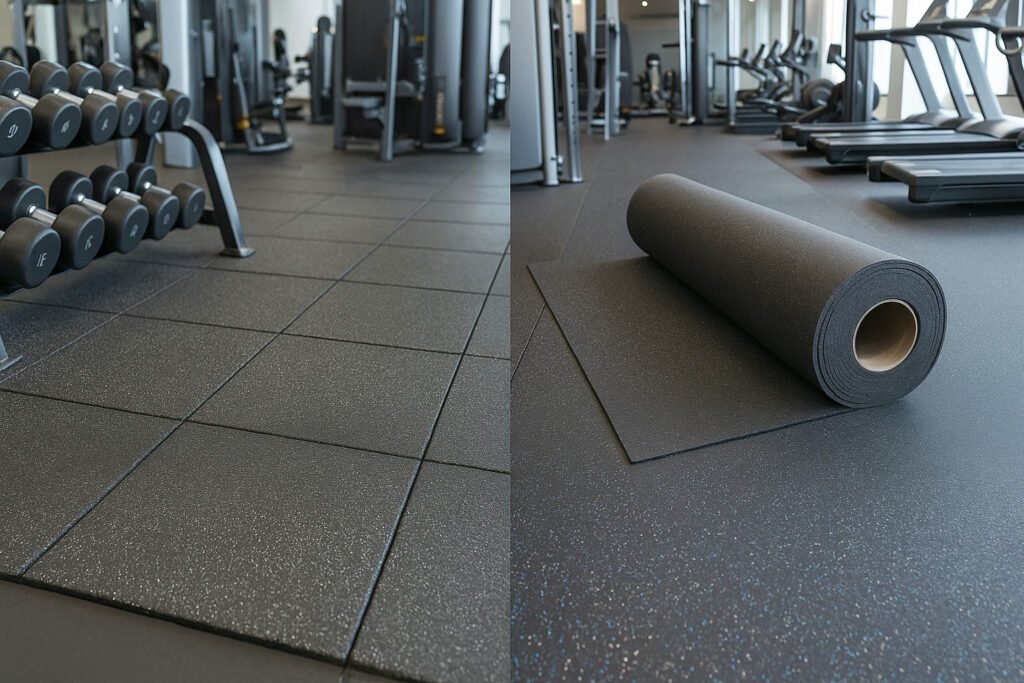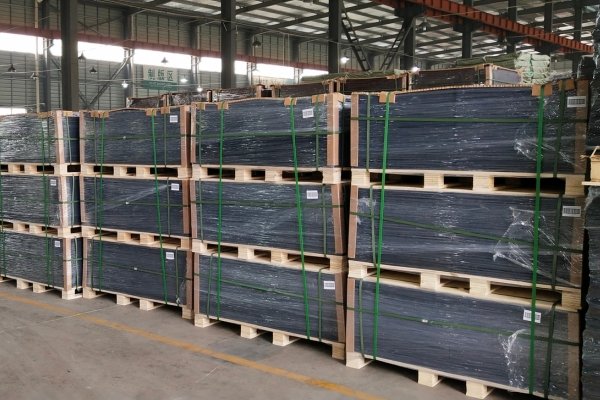Rolls vs Tiles: Which Do Distributors Prefer?
For distributors, the question isn’t just about product specs—it’s about what sells fast, stores easily, and aligns with end-customer expectations.
Rubber rolls are easier to store and move, but rubber tiles offer higher customization and better profit margins in weightlifting markets.

What Does the Market Demand?
Your inventory needs to reflect trends, not just specs.
Weightlifting zones and boutique gyms often ask for rubber tiles, while chains and general fitness studios lean toward rubber rolls.
Tiles: Popular in Functional & Premium Gym Sectors
Products like tiny granule tiles and composite tiles are in demand among:
- CrossFit boxes
- Strength-focused studios
- Government or military gym projects
These clients often require >25mm thickness, modular layout flexibility, and bold color zoning. Rubber tiles meet these needs, and allow you to offer multiple thickness and color SKUs for branding.
Rolls: Go-To for High Volume Orders
Rubber rolls are commonly ordered by:
- Commercial gym chains
- Cardio/yoga-focused studios
- Distributors serving budget-conscious buyers
Rolls are faster to install, cover more area per unit, and are often seen as “safe stock” that can move quickly when price and quantity are key.
Which Is Easier to Store and Handle?
Storage efficiency can cut overhead. Damaged product = lost revenue.
Rubber rolls take up less warehouse space, while tiles are easier to manage in small batch deliveries.

Rolls = Space Saving, Bulk-Friendly
- Easier to scan and count
- Faster to load/unload by forklift
- Fewer SKUs needed to meet most orders
Tiles = Modular But Bulky
Rubber tiles (especially puzzle tiles) are packed flat with paperboard layers.
- Take up more CBM per m²
- Require more pallets per container
- Are easier to count and replace
What Do End Customers Prefer?
Home gym buyers and boutique gym designers prefer tiles. Facility managers often request rolls.
Rubber Tiles = High Perceived Value
- More SKUs: thickness, color, texture
- Easy demo sets (1–2 samples per type)
- Clear segmentation by use case
Rubber Rolls = Simpler Sell, Broader Fit
- Easier to quote
- Quicker to install
- Lower per m² cost
Conclusion
Rubber rolls are great for storage, logistics, and high-volume sales. Rubber tiles offer higher customer engagement, better margins, and premium appeal. The best distributors stock both—based on their clients’ project types.
Related Articles
- Rubber Rolls vs Tiles: Which Type Ships Cheaper?
- Rubber Tiles vs Rolls: Which Flooring Works Best for Commercial Gyms?
- Which Flooring Type is More Durable Under Heavy Use?
- Rubber Flooring Distributor Guide
Ready to build your distributor line?
- Contact us for container loading specs, private label support, and samples
- Explore our Project Gallery
- Check our EPDM solutions for outdoor expansion
